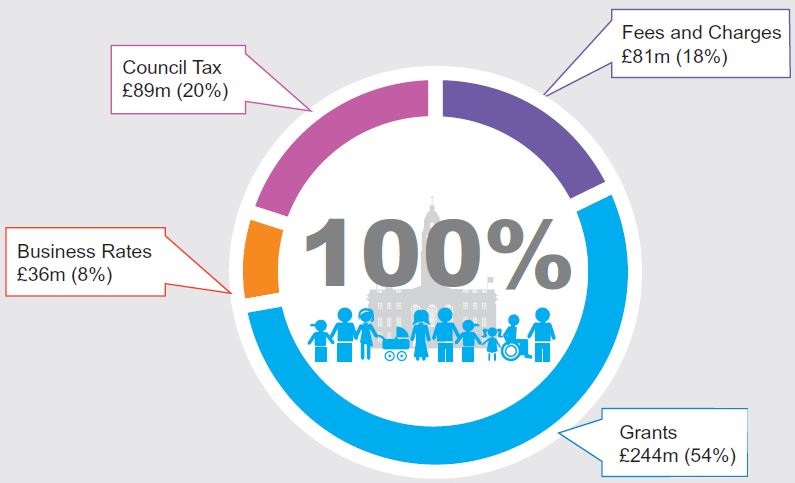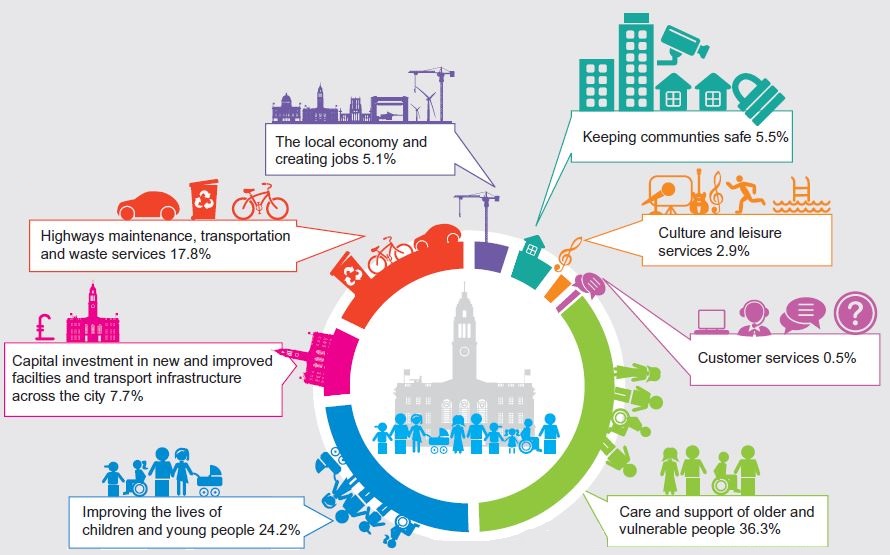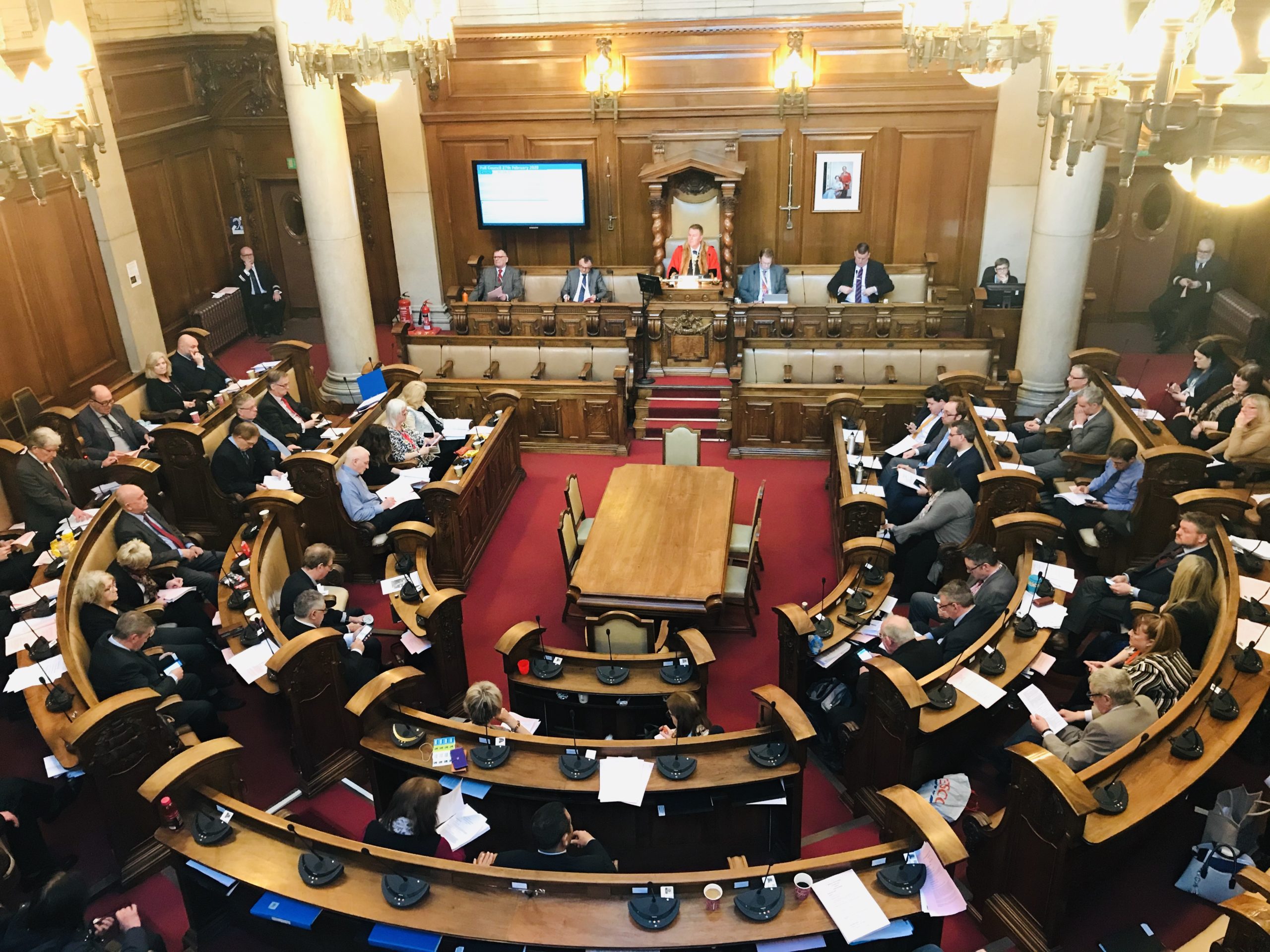The budget statement from Councillor Stephen Brady, Leader of Hull City Council, has been approved for 2020/21.
The budget, approved at a meeting of Full Council today, includes changes in Council Tax and children’s services, and the city’s carbon neutral commitment for 2030.
Here are 10 things you need to know about the 2020/21 budget:
1. Council Tax
Council Tax will be increased by 3.99 per cent from April, which includes a 2 per cent adult social care precept. For people living in a Band A property, this will be an increase of 70 pence a week for council services and an annual increase from £914 in 2019/20 to £950 in 2020/21.
Discounts continue for young people leaving care and Armed Forces personnel.
There will be an extension of the empty property premium to 200 per cent for properties empty for more than five years, to continue to bring empty properties back into use. Council Tax funds 20 per cent of local services, whilst 80 per cent of the funding comes from the Government and other sources, such as grants.

2. Government funding
Central government funding has reduced by £130m between 2010 and 2020 (a 55 per cent reduction). This equates to approximately £504 per resident. There are no cuts to services for residents in the year ahead and the council continues to provide more than 400 services.
3. Children’s services
A further £3.2 million of additional funding has been allocated within the budget to meet the increasing demands within children’s services. £4.2 million has also been allocated to help overhaul the provision and address issues raised by Ofsted.
This means a total of £60 million is allocated to children’s services for 2020/21, around a quarter of the council’s budget.
The demands in children’s services continue to rise, as it does right across the country. In Hull, there are currently 536 children subject to a child protection plan and 845 looked-after children. One of the key priorities is to grow the number of available residential placements, to enable children to be placed within the city, in smaller homes within community settings.
Councillor Stephen Brady said: “We are committed to responding to the recent Ofsted report and to the changing nature of care provision so that we are able to adequately meet the needs of children and families. This is why we believe investing a further £7.4 million for these services is vital to allow significant transformation of service delivery and for the improved experiences of vulnerable children in the city.”
4. Adult social care
To help meet the increasing demand in adult services, an additional £5.5 million is being allocated for adult social care. The total budget for adult social care services in 2020/21 is £75.5 million, which accounts for just over a third of the council budget.

5. Fly-tipping
The fly-tipping blitz team will continue to be funded to ensure most fly-tipped waste is cleared within 48 hours.
In the six months from April to September 2019, officers carried out 3,705 actions in relation to fly-tipping and were able to identify 23 people to issue fixed penalty notices to and prosecute 33 others. The council has been recognised for work in relation to fly-tipping by the Yorkshire and Humber Environmental Enforcement Group.
Dropped chewing gum will also be a priority and free bulky item collection will continue.
6. Carbon neutral 2030 commitment
A total of £200,000 has been committed for the coming financial year, and again in the year after, to bolster the council’s carbon neutral initiatives to work towards a target of zero carbon emissions by 2030.
And £100,000 is being allocated to contribute towards the success of another electric car race in 2020, showcasing the emerging technology that will be the future of all transport in the world. It will contribute to the city’s zero carbon target and see organisations engaging with young people to build the electric cars and race around a city centre circuit.
7. Additional benefits for residents
The KAT Card providing discounted bus travel for young people will continue, along with the anytime bus pass for pensioners. The introduction of a street marshal initiative will help to make the city safer and CCTV cameras are being upgraded.
8. Housing
Housing rent will rise by 2.7 per cent from April. This means the average rent will be £74.19 per week, up from £71.80. The council is the city’s biggest landlord with around 23,500 properties. Some 500 new homes will be built over the next five years.
9. Capital Budget
The Capital Budget will continue to be used to regenerate the city, with an investment of £390 million over the next three years.
Money has been spent on all leisure sites across the city and the re-vamp of Beverley Road Baths and Albert Avenue Baths, as well as re-introducing the lido, will take place in the year ahead.
Libraries will benefit from an additional £400,000 each year for the next three years and the city’s parks will be allocated an additional £200,000 a year over the next three years. East Park and the Aviary at Pickering Park will see investment of £500,000.
A total of £500,000 has been committed in 2020/21 and a further £450,000 in 2021/22 to improve the cycling network. This will help reduce congestion, reduce the city’s carbon footprint and help improve the health and wellbeing of residents.
The Capital budget will also be used for further improvements to highways and bridges, schools maintenance and improvement programme, upgrades to car parks, ICT and initiatives which work towards becoming a carbon-neutral city.
10. World-class visitor destination programme and high street regeneration
A total of £53.6 million is being invested over the next three years, of which £42.7 million is coming from external funding bids, into the 2017 Legacy programme. This includes a cruise terminal, the revamp of Queens Gardens and investment in the city’s museums.
The Albion Square regeneration will also be progressed, the Heritage Action Zone project will continue to provide a platform for the Old Town and the regeneration of Pearson Park continues. High Street regeneration will see an additional investment of £23 million on top of that already committed.
Councillor Phil Webster, portfolio holder for finance and transformation, said: “In addition to delivering services to our residents, we are dedicated to continuing to regenerating the city.
“In the year ahead, we will see further progress to the facelift of the city centre and build on the increased footfall, visitor attraction and local resident enjoyment and pride in the city centre. Residents will continue to benefit from improvements to leisure facilities and parks and the Schools Improvement Programme will ensure the number of school places increases and meets the needs of children in the city.
“This year’s budget delivers on the council’s promise of maintaining the levels of service as well as protecting jobs. We have financially laid a solid foundation for the city, after a 55 per cent reduction to our revenue grant over the past 10 years.”
Read the full Budget Statement here.
